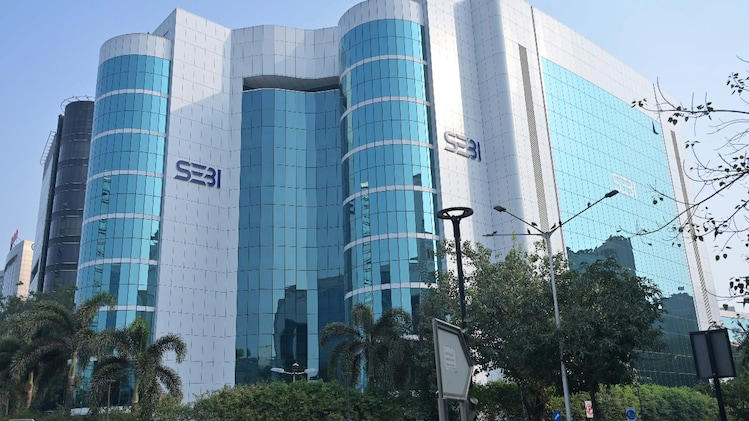SEBI Introduces Intraday Monitoring for Index Derivatives from April 1, Delays Penalties for Breaches
Markets regulator Securities and Exchange Board of India (SEBI) has introduced a crucial change in the monitoring of intraday index derivative positions, set to take effect from April 1, 2025. As per the new guidelines, stock exchanges must monitor existing position limits for index derivatives on an intraday basis. However, in a relief to traders and market participants, SEBI has clarified that there will be no penalties for breaching these limits until further notice.
SEBI’s new approach will require stock exchanges to take at least four random snapshots of market positions during trading hours to track compliance with position limits. The number of snapshots may be increased by exchanges, but a minimum of four must be recorded each day. This regulatory update comes after concerns were raised by industry bodies regarding the challenges faced by brokers and clients in adapting to real-time intraday monitoring. Market participants have pointed out that existing systems are still evolving to accommodate the changes proposed in SEBI’s February consultation paper, which suggests a shift to delta-based or futures-equivalent position limits.
Acknowledging these operational challenges, SEBI has opted for a phased approach. The decision to delay penalties for intraday breaches will provide much-needed flexibility to brokers, traders, and institutional investors while they adjust to the evolving market infrastructure. The regulator also highlighted that introducing intraday notional position monitoring without proper readiness could create additional strain on market systems. To ensure a smoother transition, SEBI has also proposed higher intraday limits compared to existing end-of-day limits.
As per SEBI’s February proposals aimed at enhancing risk management in the Futures & Options (F&O) market, new position limits have been defined for index derivatives. For index options, the end-of-day limits have been set at Rs 500 crore (net) and Rs 1,500 crore (gross), while the intra-day limits stand at Rs 1,000 crore (net) and Rs 2,500 crore (gross). Similarly, index futures limits have been revised, with the end-of-day limit increased from Rs 500 crore to Rs 1,500 crore, and the intraday limit set at Rs 2,500 crore. These standardized limits will apply to all market participants, including Foreign Portfolio Investors (FPIs), mutual funds, traders, and retail clients, ensuring a level playing field.
This move is part of SEBI’s broader initiative to strengthen market risk management and improve trading efficiency. In addition to monitoring intraday positions, SEBI has also been considering real-time tracking of F&O open interest, which could significantly enhance transparency and help investors make more informed trading decisions.
Alongside these critical regulatory changes in the derivatives market, SEBI has also introduced a fast-track framework for follow-on offers (FPOs) by Real Estate Investment Trusts (REITs) and Infrastructure Investment Trusts (InvITs). Under the new guidelines, preferential allotment of REIT and InvIT units to sponsors will be subject to a structured lock-in period. Sponsors and their groups must retain at least 15% of their allotted units for three years, while the remaining units will be locked in for one year. SEBI has also provided further clarity on inter-group transfers within REITs and InvITs, ensuring greater transparency and stability in these investment vehicles.
The new FPO mechanism for REITs and InvITs is designed to simplify the process of raising additional capital after an initial public offering (IPO). With immediate effect, REITs and InvITs must comply with detailed provisions concerning listing approvals, offer documents, and minimum public unit holding requirements. Before proceeding with an FPO, they are required to obtain in-principle approval from stock exchanges and file necessary documentation with SEBI after securing clearance from merchant bankers.
These developments mark another step in SEBI’s ongoing efforts to enhance market efficiency, transparency, and risk management across different asset classes. By allowing market participants more time to adapt to new intraday position monitoring while simultaneously introducing streamlined mechanisms for REITs and InvITs, SEBI aims to foster a more resilient and investor-friendly financial ecosystem.
For the latest updates and in-depth video news coverage, visit our YouTube channel THE OLIGO.

